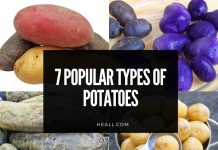Choline and inositol are important nutrients that can be found in various dietary sources. A well balanced diet is crucial in maintaining health.
In addition to vitamins and minerals, the foods we eat provide us with energy and essential nutrients required for life. Some of these nutrients include choline and inositol. These nutrients can be obtained from a well balanced diet and are essential in maintaining a healthy body. In cases of poor nutrition, the use of supplements may have benefits.
Table of Contents
Dietary Recommendations for Choline and Inositol
The Food and Nutrition Board of the Institute of Medicine has determined that the recommended daily intake of choline in healthy adults should be between 425 to 550 mg per day. Furthermore, an upper tolerable intake limit of 3.5 g per day has been established for choline. Currently, there are no recommendations for daily intake of inositol.
Choline
Choline is an important component of lipid molecules that form cell membranes, signal cells, and transport lipids. In addition, choline can be converted into acetylcholine, an important neurotransmitter in multiple organ systems. Since choline is an essential nutrient that cannot be synthesized within the body, it must be obtained from the dietary sources including eggs, liver, dairy and peanuts. Choline in foods is usually found in the form of phosphatidyl choline.
Inositol Hexaphosphate
Inositol naturally occurs in many different forms within the body, including inositol hexaphosphate. Inositol hexaphosphate can also be obtained from dietary sources including, brown rice, beans, corn, wheat bran and other high-fiber foods.
Inositol is an important part of compounds that cells use to relay signals from the outside of the cell back towards the inner nucleus. In addition, inositol is involved in the metabolism of many minerals including calcium. Although the American Cancer Society reports that inositol has been studied in slowing the progression of tumor growth, the evidence to support this claim remains inconclusive.
Choline and Inositol Supplements
Since choline and inositol are readily available from dietary sources, the use of supplements is often unnecessary. However, it is important to keep a balanced diet that can supply sufficient amounts of both these nutrients. Choline and inositol supplements may be considered in cases of poor nutrition. Patients should consult a physician before using any supplements since they may interfere with medications and exacerbate certain health conditions.
References:
1. American Cancer Society: “Inositol Hexaphosphate” (Accessed December 7, 2010).
2. Linus Pauling Institute: “Choline” (Accessed December 7, 2010).



